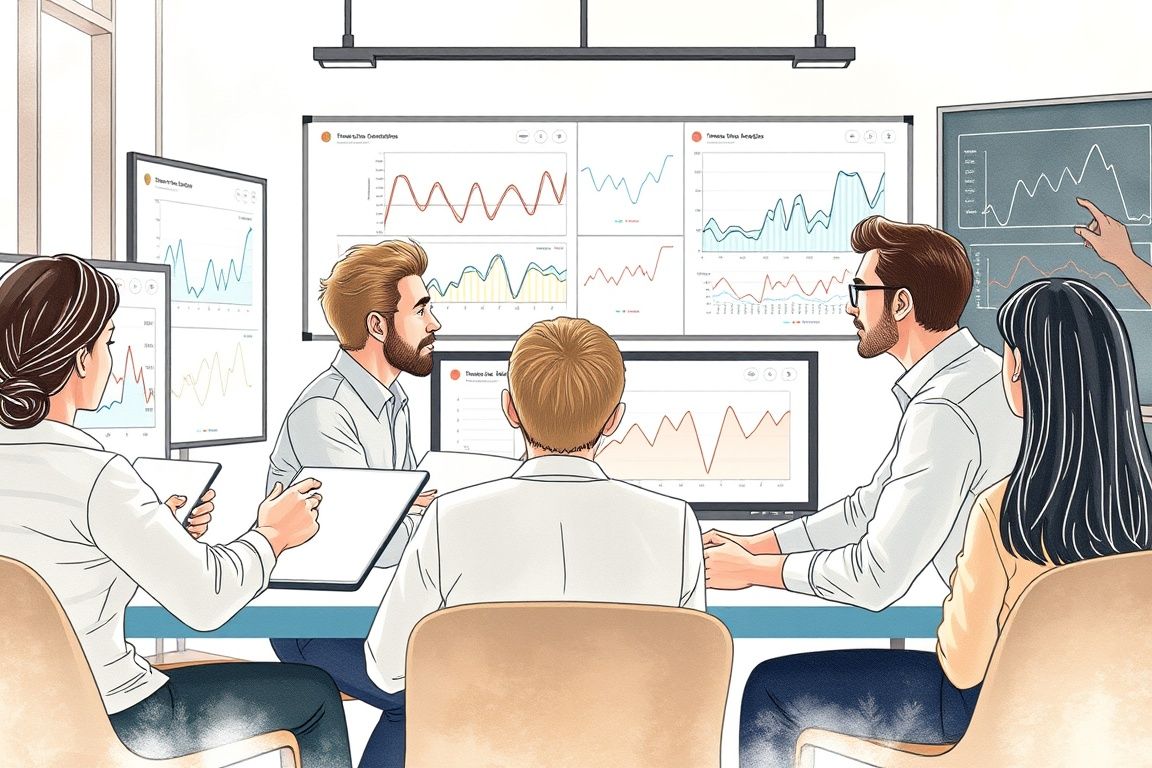Time Series Analysis
Why It’s Worth It
Gain critical skills in data analysis that are applicable across various industries and sectors.
Enhance your decision-making capabilities through data-driven insights derived from historical trends.
Acquire practical knowledge that can directly improve your forecasting and analytical skills in real-world scenarios.
Your Learning Roadmap
Foundations of Time Series Analysis
This module introduces the fundamentals of time series analysis. Participants will explore what time series data is, why it is important, and where it is applied, such as in finance, marketing, and environmental studies. The lessons build a theoretical foundation enriched with examples drawn from popular texts. Introduction to Time Series Data Applications and Importance Key Concepts and Notation
Data Preprocessing and Exploration
This module focuses on transforming raw time series data into an analyzable format. Participants will learn standard preprocessing techniques from popular texts like 'Introductory Time Series with R'. Topics include handling missing data, smoothing techniques, and plotting time series data for clear insights. Data Cleaning and Missing Values Exploratory Data Analysis for Time Series Transformations and Detrending
Identifying Patterns and Components
This module delves into the decomposition of time series data into its underlying components, including trend, seasonality, and irregular fluctuations. The lessons provide a systematic approach to analyzing these patterns using techniques supported by books such as 'Forecasting: Principles and Practice'. Trend Analysis Seasonality and Cycles Decomposition Techniques
Moving Averages and Smoothing Techniques
This module focuses on moving averages and other smoothing methods to filter out random fluctuations. The content draws on techniques from popular texts and provides practical examples. Learners will gain hands-on experience applying these methods to refine data for forecasting. Simple Moving Average Exponential Smoothing Comparing Smoothing Methods
Forecasting and Model Evaluation
The final module focuses on forecasting methods, introducing learners to techniques that leverage historical data for predicting future values. It covers simple forecasting approaches and the criteria for evaluating forecast accuracy. Reference frameworks from 'Forecasting: Principles and Practice' are utilized throughout to connect theory with practice. Introduction to Forecasting Building Forecasting Models Evaluating Forecast Accuracy
What Users Are Saying
All You Need to Know
Start Analyzing Time Series!
Real-time chat support for personalized guidance.
Hands-on exercises for practical application of concepts.
Flexible learning schedule to fit your lifestyle.
Access to a wealth of resources for deep dives into the subject.
Structured modules that build your skills progressively.
Instant feedback to help you learn and improve quickly.

